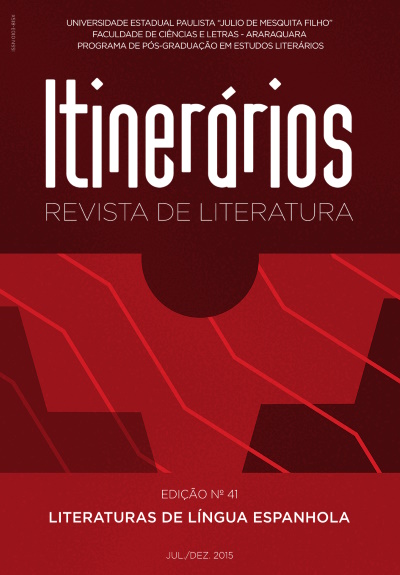The universal criollismo in Jorge Luis Borges: appointments about language and literature
DOI:
https://doi.org/10.58943/irl.vi41.8414Keywords:
Jorge Luis Borges, Universal criollismo, Literature, Language, Buenos Aires,Abstract
Between 1925 and 1928, Jorge Luis Borges wrote three essay books that combine themes of a regional nature with complex reflections of universal delimitation. These last ones, which characterized his writings in later decades, are linked to their youth essays, largely due to a particular Argentine space, the mythological arrabal (suburb) of Buenos Aires, and his most popular Borgean character, the brave compadre of knife duels. Arrabal and its inhabitants, autochthonous elements of Borges homeland, far from characterizing themes of the Argentina of the late nineteenth century, interwoven with universal reflections on Spanish language and literature and language in general, a new and very particular writing by the argentine writer: the universal criollismo.
Downloads
Published
Issue
Section
License
Os manuscritos aceitos e publicados são de propriedade da revista Itinerários. É vedada a submissão integral ou parcial do manuscrito a qualquer outro periódico. A responsabilidade do conteúdo dos artigos é exclusiva dos autores. É vedada a tradução para outro idioma sem a autorização escrita do Editor ouvida a Comissão Editorial.

